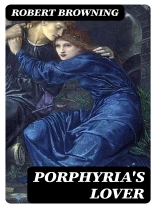In ‘Porphyria’s Lover, ‘ Robert Browning masterfully explores themes of desire, power, and the psychological complexities of love through a dramatic monologue. The poem’s striking imagery and intricate use of language capture the tension between the speaker and his lover, Porphyria, culminating in a chilling act of violence that reveals the darker aspects of human emotion. Set against the backdrop of Victorian society, Browning’s work reflects contemporary debates around gender roles and social constraints, all while employing his signature style that fuses emotional intensity with a rich, lyrical quality. Robert Browning, a prominent figure in the Victorian literary scene, was known for his innovative approach to poetry and his exploration of duality in human experience. His own turbulent love life, particularly his relationship with Elizabeth Barrett Browning, likely influenced the themes of obsessive passion and destructive love present in ‘Porphyria’s Lover.’ The poem contributes to Browning’s broader oeuvre, which often delves into the darker sides of love and human connection, showcasing his fascination with psychological motivation. Readers seeking a profound exploration of love’s complexities and the interplay of societal norms will find ‘Porphyria’s Lover’ both engaging and thought-provoking. Browning’s skillful portrayal of the interplay between passion and madness invites readers to reflect on the nature of desire and the lengths to which individuals will go for love, making this poem an essential read for those interested in the darker nuances of romantic relationships.
Sobre el autor
Robert Browning (1812-1889) was a distinguished English poet and playwright known for his mastery of dramatic monologue, a poetic form that he significantly developed. Born in Camberwell, London, Browning grew up in a family where the arts were valued, and he was educated at home, drawing extensively from his father’s 6, 000-volume library. Best known for his psychological insight and character development, Browning’s work stands as a testament to his innovative approach to Victorian poetry.
Browning’s volume ‘Porphyria’s Lover, ‘ first published in 1836 under the title ‘Porphyria, ‘ provides a vivid example of his use of dramatic monologue to explore complex human emotions and morbid psychologies. The poem delves into themes of love, obsession, and the dynamics of power. It also showcases his ability to create a compelling narrative within the confines of a single speaker’s perspective. Browning’s literary style is characterized by his use of enjambment, unconventional rhymes, and a penchant for dark, psychological complexity. These elements often challenge readers but reward with deeper meanings upon closer examination. His work influenced many, and his legacy endures in the canon of English literature, providing vital insights into the moral and philosophical challenges of his time (Mason, 2001).












